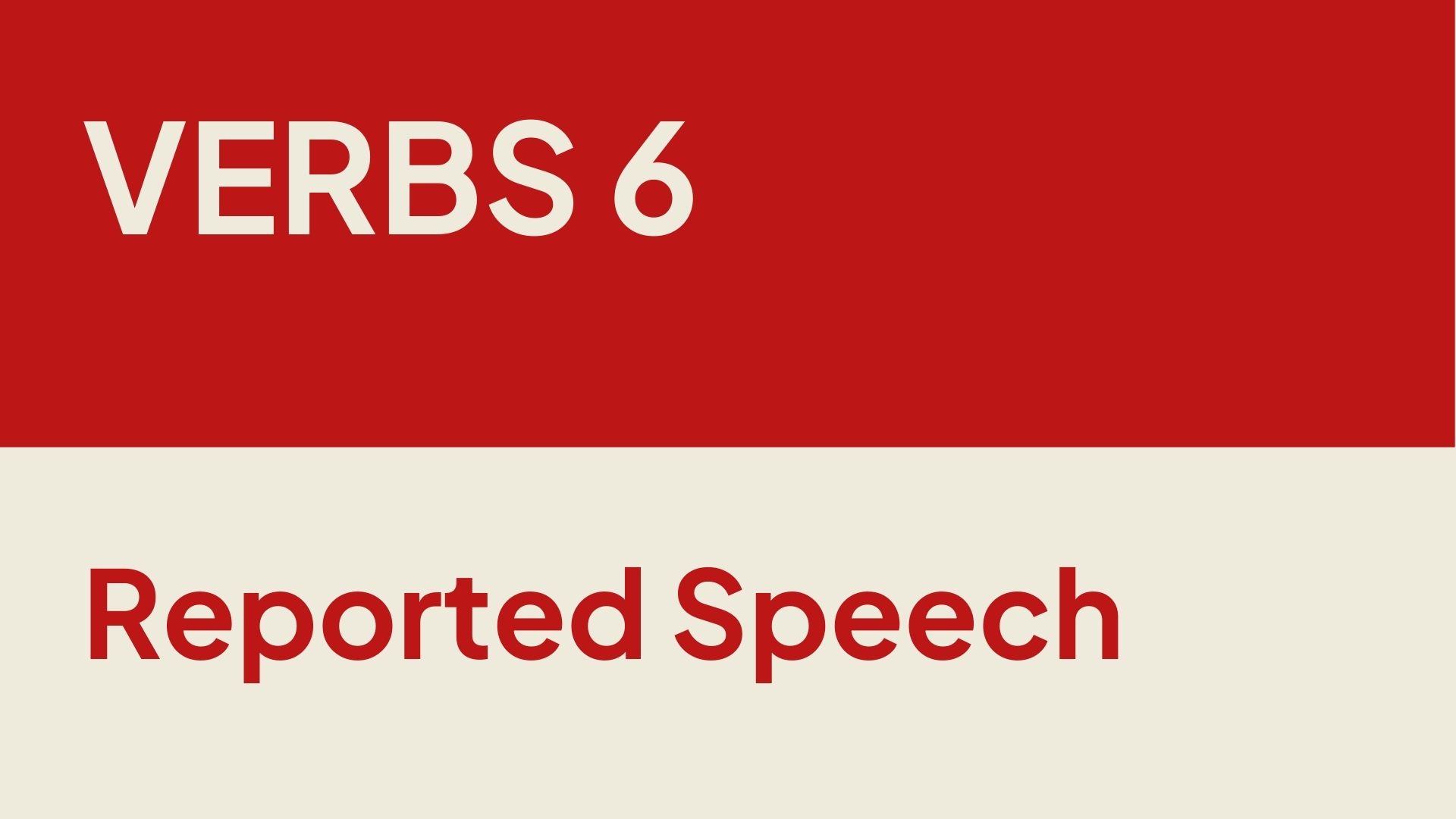
Learning Material |
|---|
There are 9 parts of speech or word classes in English language:
– nouns
– pronouns
– determiners
– verbs
– prepositions
– adjectives
– adverbs
– conjunctions
– interjections
In expressing something, we can use:
– direct speech
She says, “I like fish.”
She said, “I am visiting London next week.”
– indirect speech / reported speech
She says that she likes fish.
She said that she was visiting London the following week.
We can use reported speech for:
– statements
– questions
– requests
– commands
Reported Speech for Statements
When we are using reported speech, we need to make sure whether we need to change or adjust these elements:
– pronouns
– determiners
– adverbs of time
– adverbs of place
– tenses
Pronoun & Possessive Determiner Adjustment
direct speech: I said, “I like fried chicken.”
reported speech: I said that I like fried chicken.
(no adjustment needed)
direct speech: He said, “I like fried chicken.”
reported speech: He said that he liked fried chicken.
(pronoun adjustment: I -> He)
direct speech: He said, “My father likes fried chicken.”
reported speech: He said that his father liked fried chicken.
(possessive determiner adjustment: my father -> his father)
Demonstrative Determiners, Adverb of Time and Place Adjustment
direct speech: She said, “I met John here.”
reported speech: She said that she had met John there.
(pronoun adjustment: I -> she)
(adverb of place adjustment: here -> there)
direct speech: She said, “John likes this place.”
reported speech: She said that John liked that place.
(demonstrative determiner adjustment: this -> that)
direct speech: She said, “I met John yesterday.”
reported speech: She said that she had met John the day before.
(adverb of time adjustment: yesterday -> the day before)
direct speech: today
reported speech: that day
direct speech: now
reported speech: then
direct speech: yesterday
reported speech: the day before
direct speech: ___ days ago
reported speech: ___ days before
direct speech: last week
reported speech: the week before
direct speech: next year
reported speech: the following year
direct speech: tomorrow
reported speech: the next day / the following day
direct speech: here
reported speech: there
direct speech: this
reported speech: that
direct speech: these
reported speech: those
Tenses Adjustment
Direct speech sentences are usually shifted back one tense, except Past Perfect and Past Perfect Continuous.
Present Simple: He said: “I am happy”
-> Past Simple: He said that he was happy.
Present Continuous: He said: “I am reading a book.”
-> Past Continuous: He said that he was reading a book.
Present Perfect: He said: “I have sent the document.”
-> Past Perfect: He said that he had sent the document.
Present Perfect Continuous: He said: “I have been living here for 5 years.”
-> Past Perfect Continuous: He said that he had been living there for 5 years.
Tenses Adjustment
Past Simple: He said: “I went to Japan last year.”
->Past Perfect: He said that he had gone to Japan last year.
Past Continuous: They told me: “We were living in Tokyo.”
-> Past Perfect Continuous :They told me that they had been living in Tokyo.
Past Perfect: He said: “They had left when I arrived”
-> Past Perfect: He said that they had left when he arrived.
Past Perfect Continuous: He said: “I had been reading when she arrived.”
-> Past Perfect Continuous: He said that he had been reading when she had arrived.”
Tenses Adjustment
will: He said: “I will help you.”
-> would: He said that he would help me.
must: He said: “I must go.”
have to: He said: “I have to go.”
-> had to: He said that he had to go.
direct speech: can
reported speech: could
direct speech: could
reported speech: could
direct speech: will
reported speech: would
direct speech: would
reported speech: would
direct speech: may
reported speech: might
direct speech: might
reported speech: might
direct speech: shall
reported speech: should
direct speech: should
reported speech: should
direct speech: must
reported speech: had to
Reported Speech for Questions
Yes/No Questions
We use ‘if/whether’ in reported speech.
direct speech: He asked, ‘Do you like rock music?’
reported speech: He asked me if I liked rock music.
direct speech: He asked, ‘Are you going to the concert?’
reported speech: He asked me if I was going to the concert.
direct speech: She asked us, ‘Have you finished the report yet?’
reported speech: She asked us whether we had finished the report yet.
Reported Speech for Questions
WH- Questions
Questions with question words: what, where, why, who, when atau how
– We use the same question word in reported speech.
– We use this pattern: question word + positive sentence
direct speech: He asked, ‘What time does the train leave?’
reported speech: He asked me what time the train left.
direct speech: She asked, ‘Where did he go?’
reported speech: She asked where he had gone.
Reported Speech for Requests
Patterns for requests, offers, and dan suggestions:
ask + to + base form
direct speech: She asked: ‘Can you hold this for me, please?’
reported speech: She asked me to hold it.
offer + to + base form
direct speech: He said: ‘Would you like me to help you?’
reported speech: He offered to help me.
suggest + -ing form
direct speech: She said: ‘Why don’t we check with John?’
reported speech: She suggested checking with John.
Reported Speech for Commands
Patterns for commands/imperatives:
reporting verb + to + base form
reporting verb + not to + base form
Reporting verbs:
– tell, order
– instruct, direct
– warn
direct speech: The guide said: ‘Please wait for me in reception.’
reported speech: The guide told us to wait for her in reception.
direct speech: The police officer said: ‘Don’t go in there!’
reported speech: The police officer warned us not to go in there.
Multiple-Choice Quiz |
|---|

Time's up